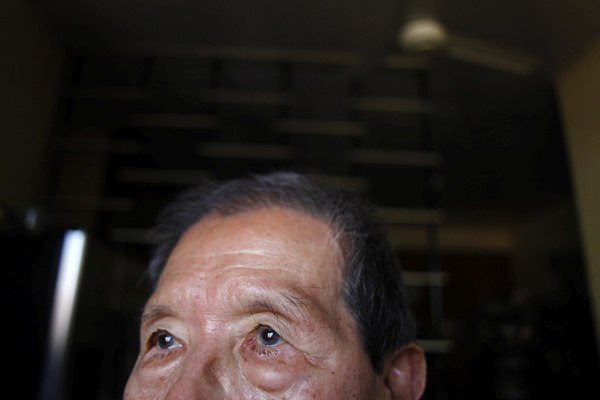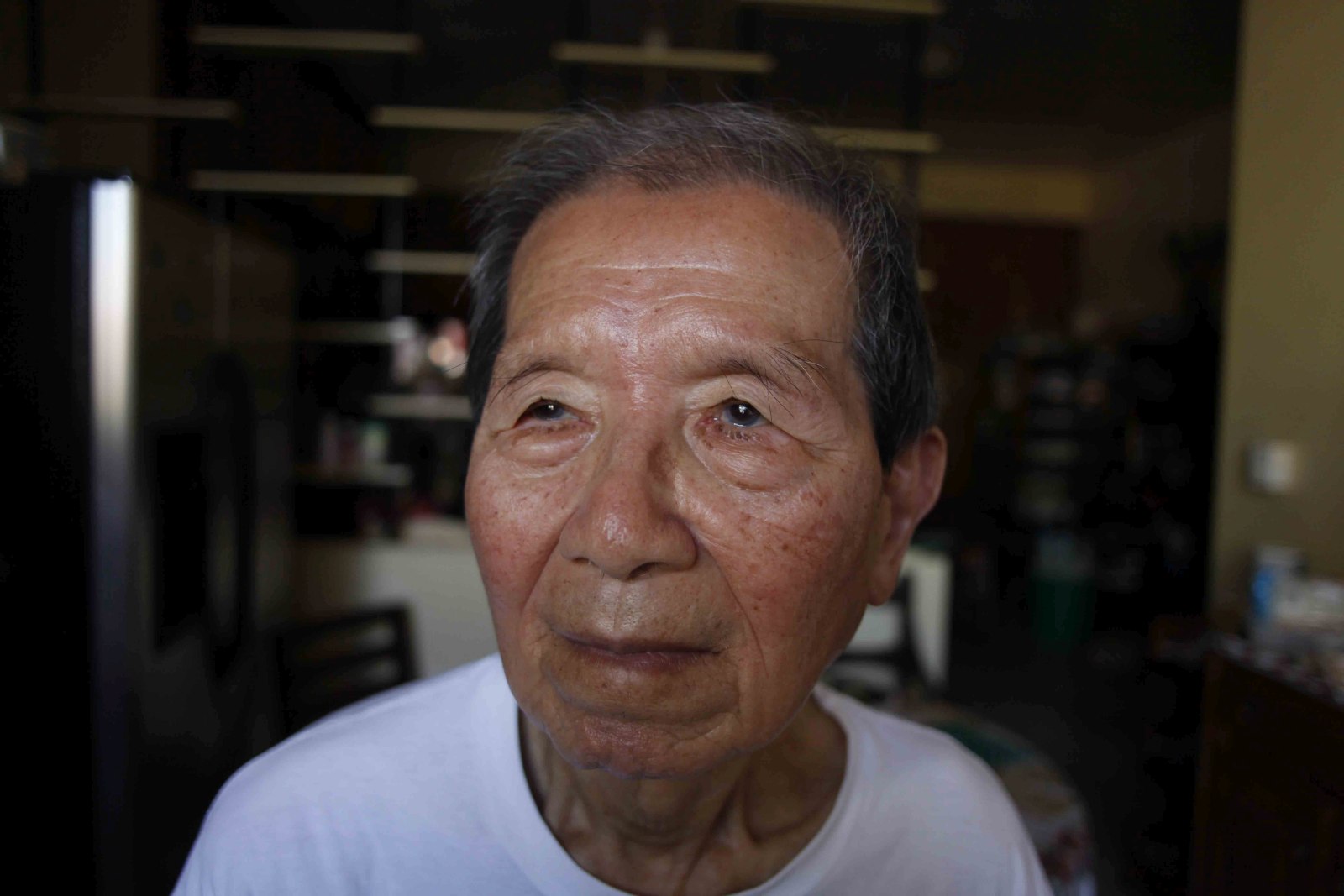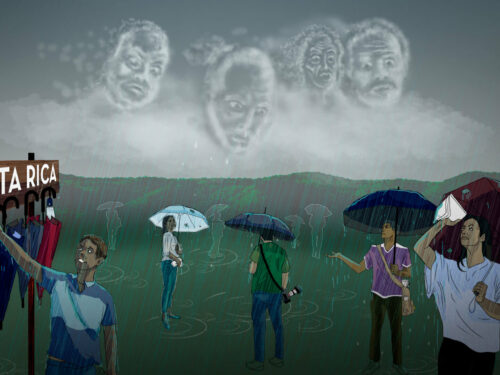
In mainland China, the festivities surrounding the Chinese New Year are intense and raucous, but here in Nicoya it is a much quieter affair. On Friday, February 8th, I gathered with about 70 people for the celebration of Chinese New Year at El Presidente Restaurant, which was closed to the public for the special event. Curiosity mounted as waiters brought out one course after another, eight in total, each one a new mix of flavors and aromas. According to the Chinese lunar calendar, this year began on Sunday, February 10th.
Dressed in a white oriental dress with pink and black flowers printed on it, Tatiana Yockchan, secretary of the Chinese Association of Nicoya (Asociacion China de Nicoya), explained that this year, the year of the snake, is a year of possibilities for dramatic, destabilizing changes.
The dinner is one of two main social cultural events hosted annually by the Chinese Association of Nicoya), which is one of two Chinese associations registered in the Nicoya area. The other is the Chinese Association of the Peninsula of Nicoya (Asociacion China de la Peninsula de Nicoya). The presidents of the two associations are first cousins.
In fact, most of the Chinese who settled in Nicoya are somehow related to each other. In general, they come from the province of Canton, in south-central mainland China. Members of the Chinese associations estimate that there are between 30 and 50 first-generation Chinese immigrants still living in the Nicoya area, and with their descendents they now form a community of 300 to 400 Chinese Ticos.
The stories of many of the Chinese families who call Costa Rica home are rooted in an era of political turmoil, natural disaster and the resulting poverty: motives for journeying to the other side of the world to adapt to a new land and a new culture, creating ties that are influencing the nation as a whole (see story “Coming to the Americas from China: One Family’s Story ).
Chinese Influence in Costa Rica
The president of the Chinese Association of Nicoya is 72-year-old Juan Edwin “Pino” Yockchan Sanchun. Pino affirmed, “I consider myself proudly Costa Rican because of the democracy and proud to have Chinese origin.”
Pino’s son, Juan Edwin Yockchan Mora, related that both he and his father were born here in Costa Rica. It was his grandfather (Pino’s father), Luis Antonio Yockchan Chacon, who immigrated in 1910 to work in the mines in Abangares because of the extreme poverty in China at the time. He already had an uncle here. In time, his grandfather married a woman who was born in Costa Rica of Chinese parents and started a family; but he said all his uncles married Costa Rican women.
Pino only speaks Spanish. However, his father, whom he says was the first Chinese person to settle in Nicoya, did instill in him Chinese values, such as stressing the importance of getting a higher education Although he himself worked in such businesses as a shoe store, a motorcycle distributor and currently owns a hotel, he pointed out that most third-generation Chinese Ticos have university educations and are making a mark on Costa Rican society as doctors, lawyers, orthodontists and politicians. One, Franklin Ramón Chang Díaz, who was born in San Jose, is even an astronaut now.
Pino was invited as a special guest to the inauguration of the Chinese neighborhood in San Jose in January. Although he said the recognition of Chinese culture is nice, he doesn’t consider it a real Chinese neighborhood since it is just an area that many Chinese happened to invest in. Ideally, he said, to create a Chinese neighborhood, an undeveloped area should be found and the neighborhood should be built with authentic Chinese architecture.
While the Chinese Association of Nicoya promotes social and cultural ties among the Chinese community in the city of Nicoya, the Chinese Association of the Peninsula of Nicoya (ACHIPEN) has worked to unite Chinese across the peninsula with a sense of moral obligation and activism. One issue for them is the maintenance of the bridge donated by Taiwan to create a direct route between the Nicoya Peninsula and San Jose. The Puente de Amistad was inaugurated on April 10, 2003 with a cost of $27,000,000, and since then, according to Ligia Quiroz Sanchun, president of ACHIPEN, has not been maintained. She said that when the bridge was inaugurated, they were told by Taiwan that maintenance would need to be done every two years to the submerged columns and the aerial part of the bridge should be repainted annually. Because of this, in 2009 ACHIPEN denounced the deterioration and met with representatives of municipalities of Nicoya and Cañas to request government intervention.
ACHIPEN also worked with Legislator Francisco Sanchun Moran to officially declare the first Monday in October as Chinese Culture Day (El Dia de la Cultura China) in order to recognize Chinese contributions to Costa Rica. This is the other Chinese holiday celebrated each year by the Chinese associations, in addition to Chinese New Year. Ligia said that in October, information about Chinese culture is given in the schools, and they host discussions on the radio about Chinese traditions, show movies that promote Chinese values such as respect for the elderly and share traditional Chinese food.







Comments